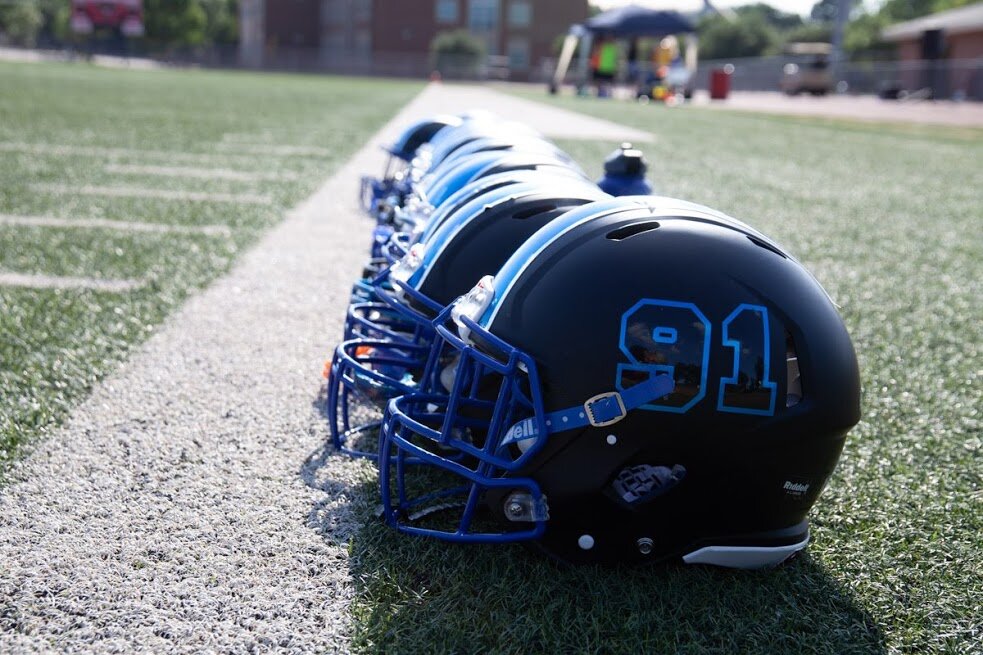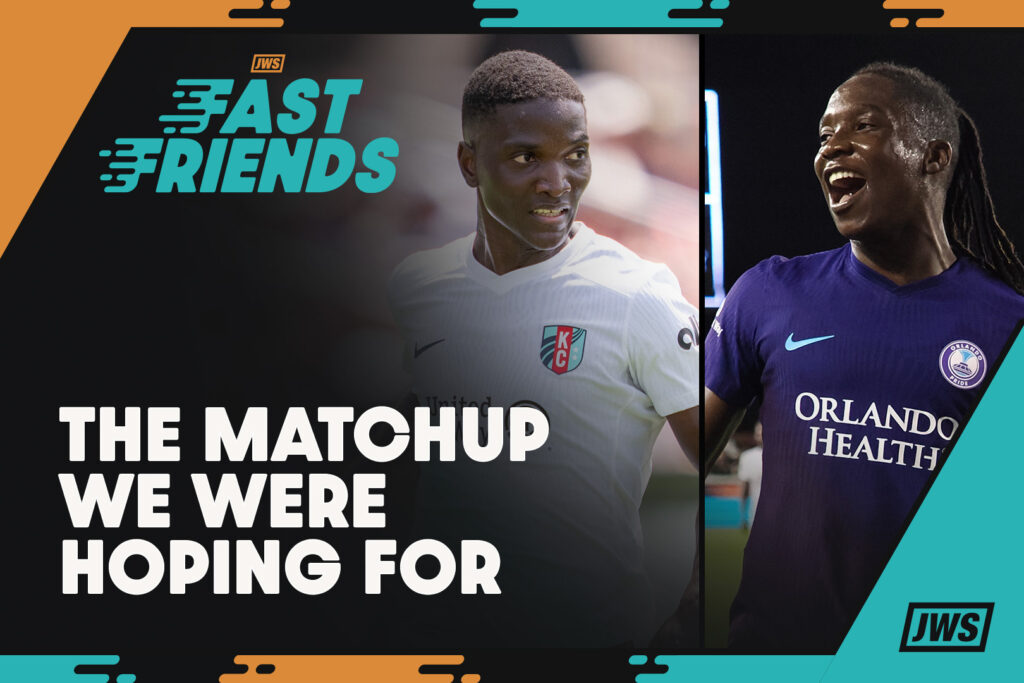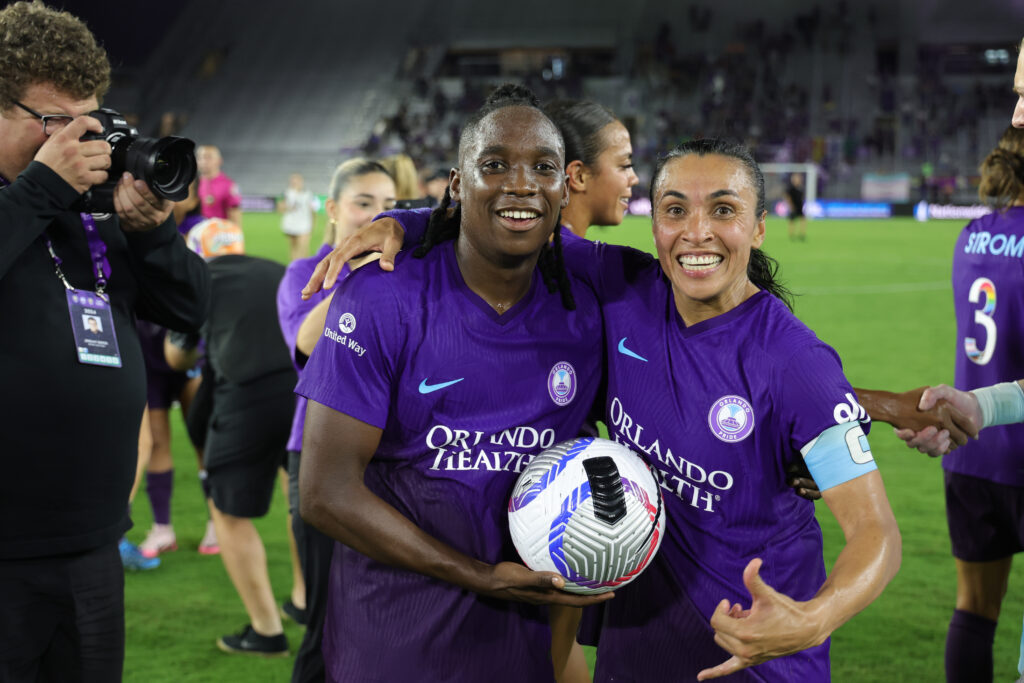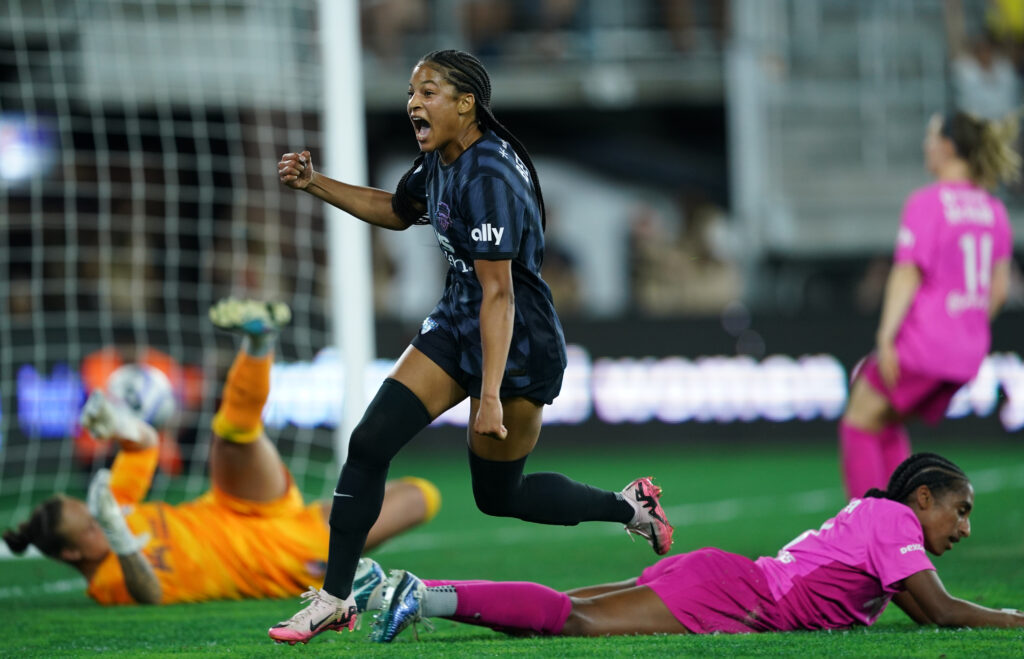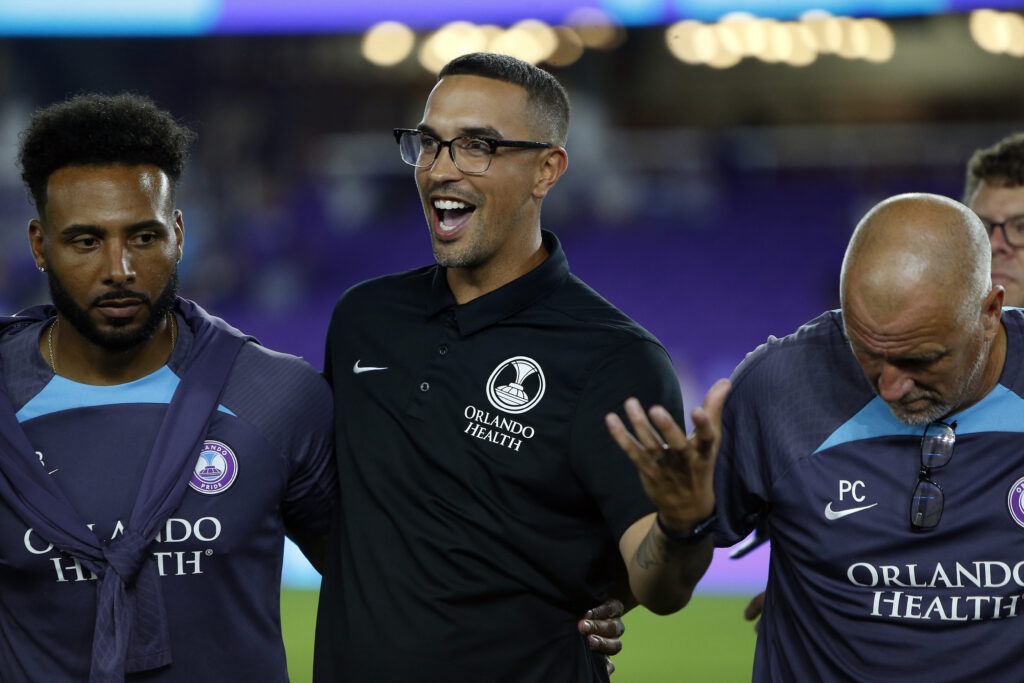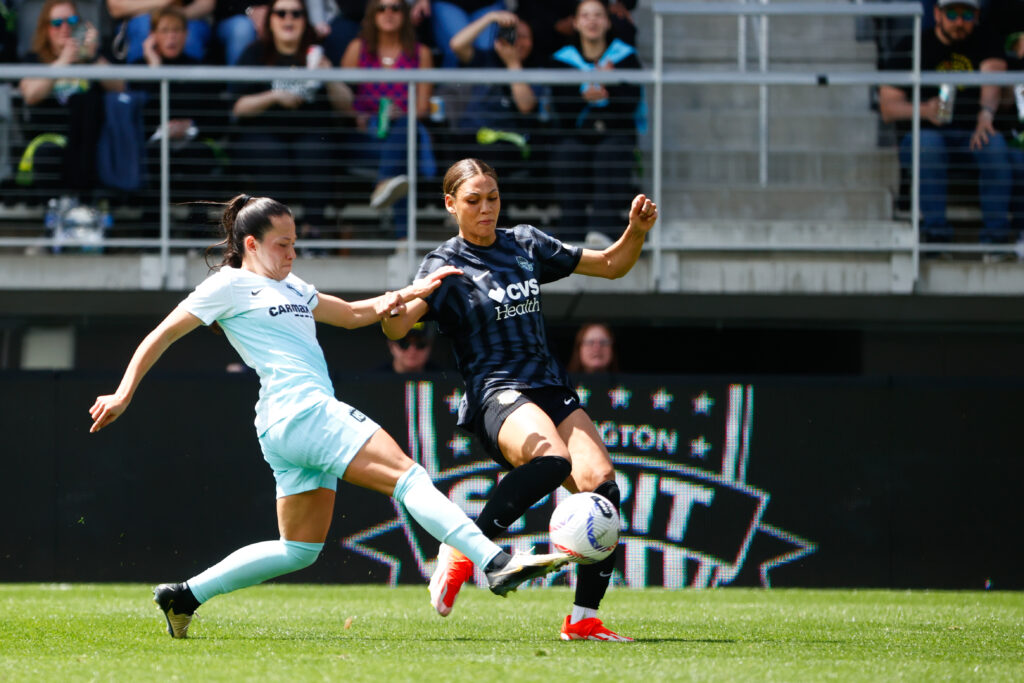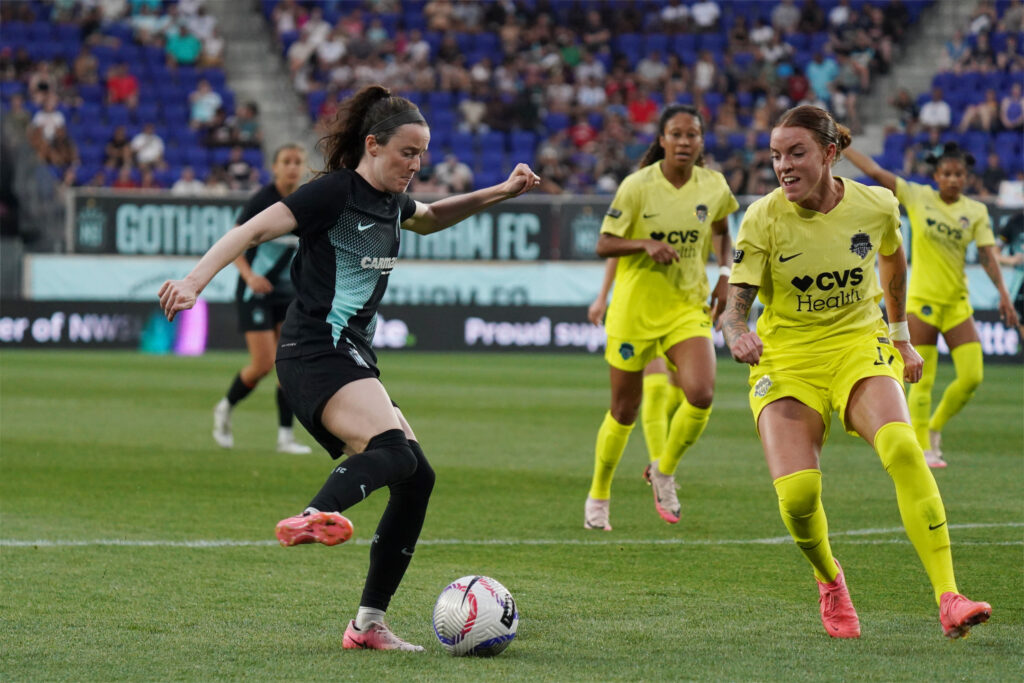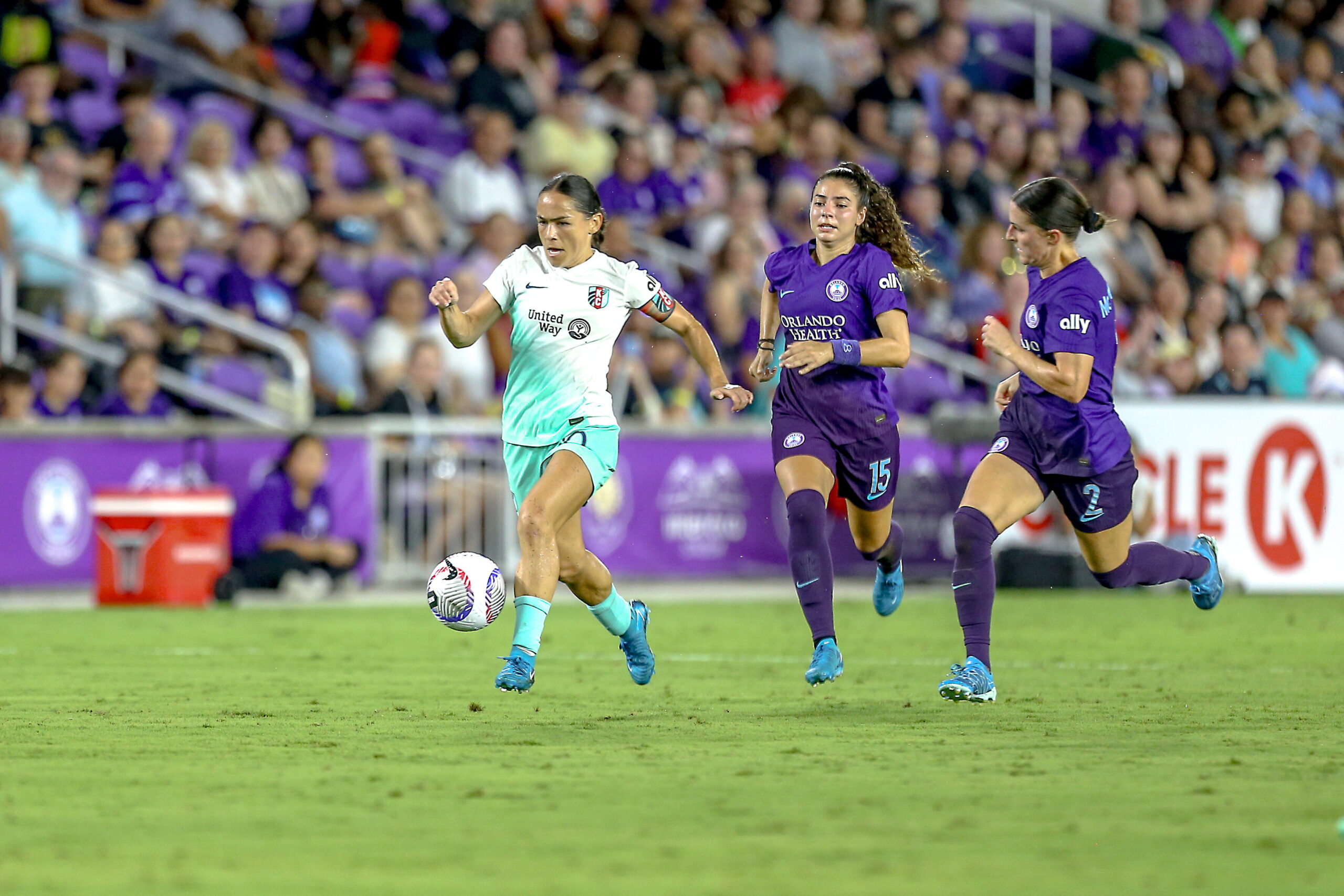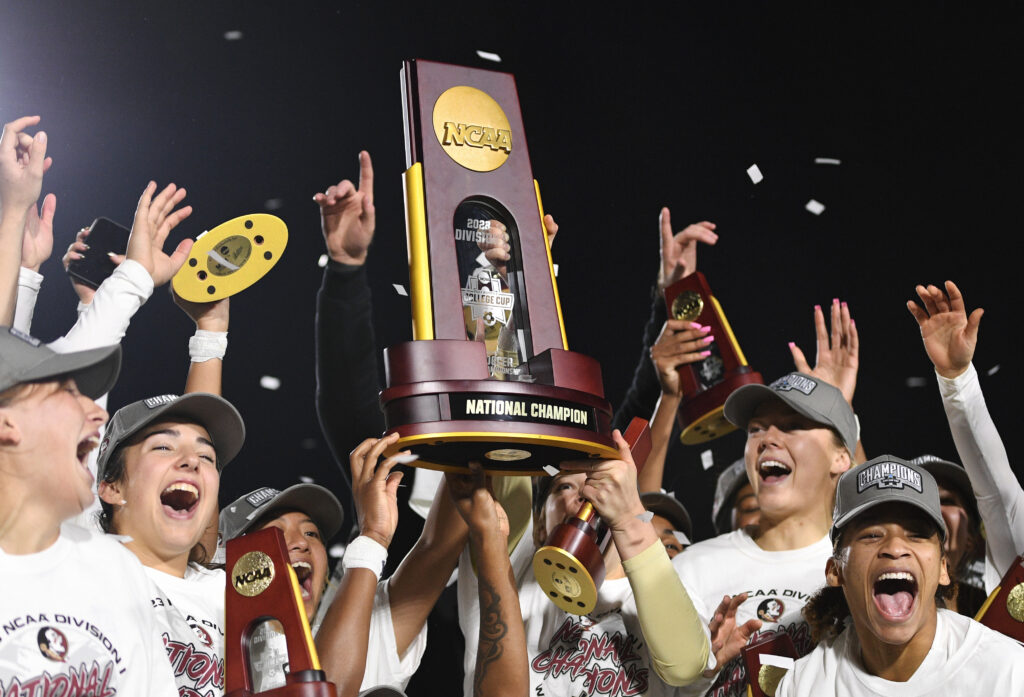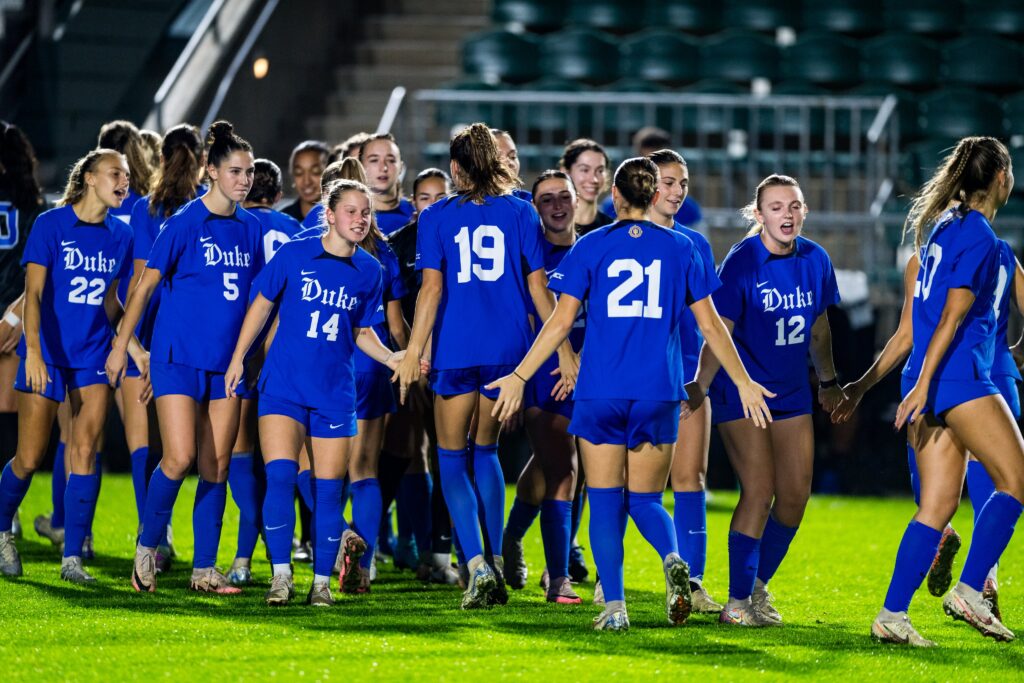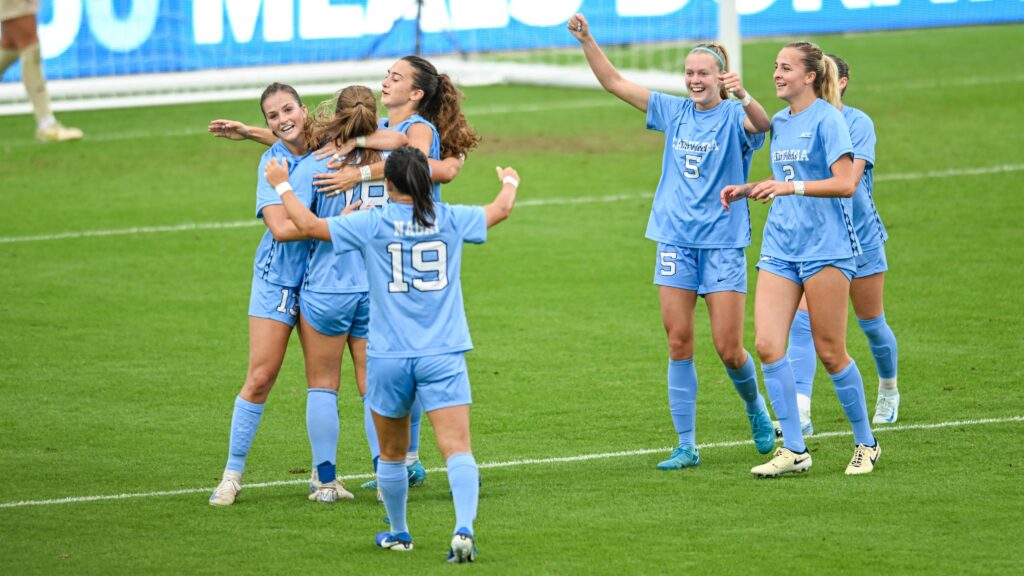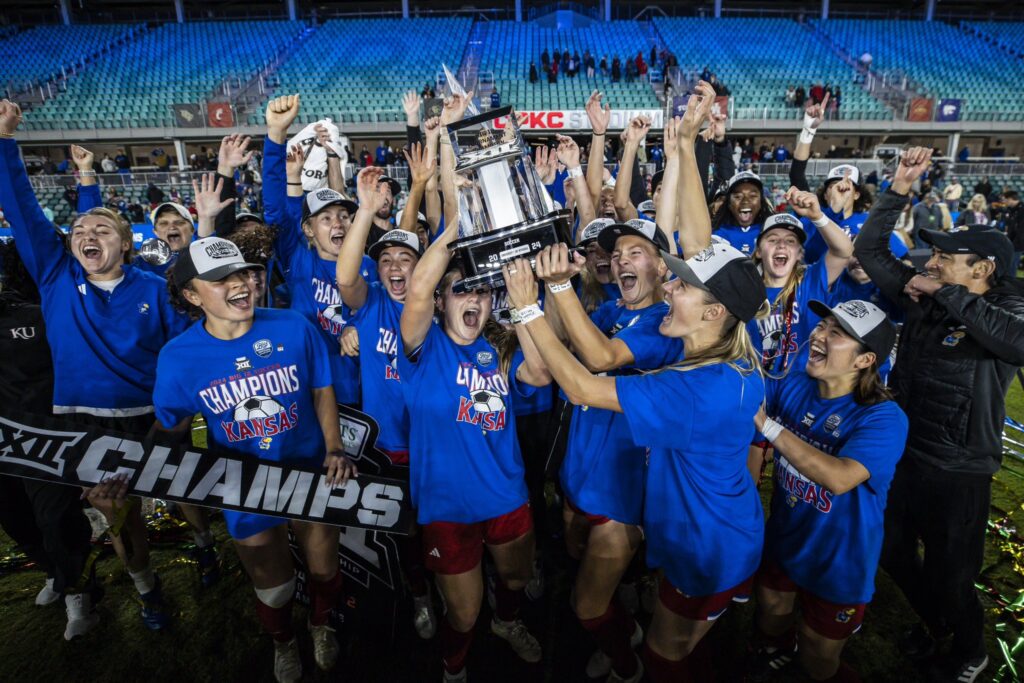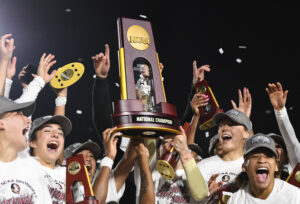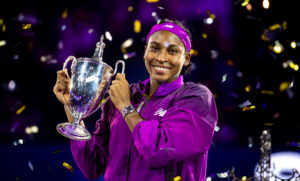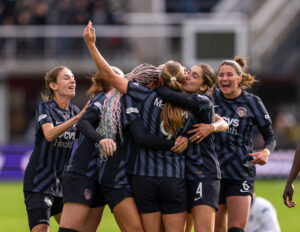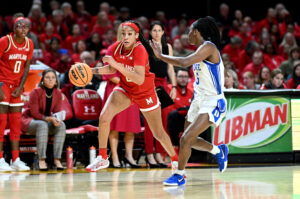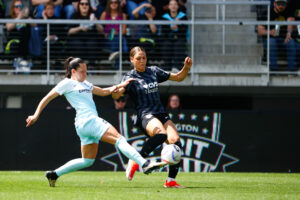Odessa Jenkins is the CEO of the Women’s National Football Conference (WNFC), a professional women’s tackle football league with over 20 teams and 1,000 women and coaches in 17 states. She spoke with Just Women’s Sports about the future of tackle football and why 2021 is shaping up to be a critical year for the WNFC.
You have an extensive background in both business and sports. Obviously, we believe that women’s sports are one of the most exciting opportunities in the space. What convinced you that the WNFC could succeed as both a business and a sports league?
I worked at a startup for several years, and in 2014 I also came to be the owner of my first women’s tackle football team. It was in a different league, and I was really excited about becoming an owner. So as I took on that ownership, I was also learning the basics of building a business from the ground up in my startup work. I learned to ask questions like, Is there a viable market for this thing? What is the value proposition? Who is the consumer that will be consuming it and growing it? How will it look 50 years from now? How is it going to make money? All of these things that I think a lot of people never consider in women’s tackle football, to be honest with you.
Women have been playing the sport for 75 years, yet there’s never been a corporation formed for women’s tackle football, which I couldn’t believe. There were charities and other kinds of businesses, but never a corporation. So I started to look at women’s tackle football like a startup. What’s my value prop? What are our lines of revenue? And that’s when I started to think about how to create the WNFC.
So why do I think it could be valuable? It’s not me, it’s the market that’s telling me that it could be valuable. There’s been $600 million invested in alternatives to the NFL over the last seven years. We have the WFNC called an alternative to the NFL, which is a compliment. And the fact that nobody knew anything about this sport outside of lingerie football, to me was a business opportunity.
So that’s what kind of got me thinking, it’s been around for 70 years, it’s not going away, there’s enough players, there’s enough coaches to spin up a new league every single year. That means that the product itself is viable. Now how we make a viable business around it is the problem that I’m solving with the WNFC.
What do you think makes the WNFC different and how are you positioning the league to be the league for womens’ football?
There’s a couple of things you have to do to be at the pinnacle of the sport. One thing we’re doing is that we aren’t taking from our team in a way that leaves them in a financially desperate situation. So for example, we’re the only league that doesn’t require a team to pay us annually. We actually have profit sharing with all of our teams.
That was the first thing we did in the WNFC. Instead of having the teams pay us, we actually paid them. A part of our five-year plan is to actually invest back into the teams and grow them to be profitable businesses.
The other thing is our branding and our marketing. We’re the only women’s tackle football league, which is crazy, that has had a chief marketing officer and a chief branding officer. Our team is structured like any other executive team would be. And so our branding, our content, is always fresh. It’s always new.
I think the other thing that makes us unique is because we’ve done those other things, we’re attractive to sponsors. So we were the first football league of our kind to solicit a global sponsorship from a major brand with Adidas. We were the league that made brands pay attention to women’s tackle football. That’s how we’ve been different is that we have actually developed revenue lines.
I think the other thing that makes us significantly different is what we’re doing with apparel. We’ve created a viable line of business with our fan shop. It’s going to be a six-figure business in 2021. That kind of volume has never really been done, frankly, because an apparel line coming out of football has never been built. So doing those kinds of things differentiates us. And I think the team that’s running the league differentiates us as well. It’s a big group of people who are doing it because they want to see women’s tackle football become a professional sport.
I was looking at your site earlier and saw the uniforms — they are really fresh, and the colors are awesome. I also saw a bit about a new TV channel, WNFC TV. Can you talk about that?
What I’m trying to do as a woman of color, and frankly as a startup founder, is to try to find other high growth businesses that are like mine and connect them to the WNFC. So we connected with this amazing company called Vyre Network, and they are a TV and live streaming network that is based in 116 countries. They are basically creating their own Hulu, with mid-level content. And so this group, Vyre Network, is now going to globally distribute all WNFC games. So we will be the first league ever to have every single one of our games globally distributed.
Everyone always asks, “Where do I find a game?” Even with the more established leagues, right. Where do I go to watch the WNBA? Now you’ll have an answer to that question for the WNFC in 2021.
You’ll go to Vyre Network. You will be able to watch our game on a mobile app. It’s free. There’s no barrier to entry, no sign in. You download it on Android or iOS. You download the application, you go to our channel, and you can start watching our games anywhere in the world. It’ll be on a website, it’ll be on Roku TV, Apple TV, and it’s coming to smart TVs in the summer. So it’s a great partnership. It’s another revenue generating opportunity for the league as we continue to grow.
And I saw that you guys had the 2021 schedule up on the site too. I mean, pending what happens with the pandemic, is that pretty much set?
Yeah, it is. Our schedule is set right now. What’s crazy is that we’ve been talking to a couple of expansion teams, so our schedule is set and done. But we might have some surprise announcements coming here very shortly where we grow a little bit.
Our championship game is going to be the weekend of August 6th and 7th. It’s going to be hosted in Dallas, Texas, at the University of North Texas, Apogee Stadium. So it’s a 60,000 person stadium, and it’ll be a big deal for us.
Our season doesn’t start until May. So we’re going to try to stay away from the pandemic as much as we can. But barring everything being shut down in May, this is going to be the most exciting year in this sport that we’ve ever had.
Kicking field goals is definitely apart of football. But, women do THIS too #boom #hammer #laythewood @wnfcfootball pic.twitter.com/zQz44u0cjc
— OJ (@OJENKINS3) January 8, 2021
I wanted to chat a little bit about you specifically and more about your background. I know you referenced working at startups and how that experience shaped your perspective. I know that you also spend time in the NFL as a Bill Walsh coaching intern. I’m curious as to how that experience shaped your perspective?
I was in the NFL for eight weeks doing an internship, mostly with the Falcons, and a week with the Dallas Cowboys and their rookie camp. I don’t know that anything was more impactful for me than truly seeing the lack of parity in the athletic experience of professional female football players compared to professional male football players.
I also learned a lot from a business perspective, frankly, walking into and getting behind the scenes of the Dallas Cowboys. Even for a week, you get a clear understanding of why they have one of the most impressive and valuable brands in all of the world. It is attention to detail, always sticking to the brand, the level of professionalism, always sticking to the plan, the way they buy into their people, keeping their culture internal, but letting it be started externally. So all of those things I learned.
But when I got to the Atlanta Falcons, Sam Rapoport was critical and has always been an ally for me, and Scott Pioli, who’s a mentor of mine, was the assistant general manager there at the time. And him and coach Dan Quinn really opened the entire organization to me. Katie Sowers had been there before me. And so that organization was very open to the idea that a baller is a baller, a coach is a coach, and it didn’t matter if you were one of the men. So they really gave me an open eye to the entire operations team. And what I really saw there was that you can’t have that level of success without a significant level of investment. And that’s why when I was with the Falcons, I determined then and there that I was going to create the WNFC, because that was the missing piece in women’s football.
Obviously the pandemic has been a big hurdle in your time as a CEO. Have there been any other big hurdles that you’ve had to get over? And if so, how have you worked to overcome them?
I think the biggest hurdles dealing with women’s tackle football right now are the pipeline, because girl’s football isn’t developed. We have to develop women’s football from the top down and not from youth to professionals. So that’s always a challenge. In developing this thing, we also have to work to develop a pipeline to help girls. It’s more challenging than it is for other sports, because Title IX doesn’t include girls playing football in college.
I think the other big challenge is fundraising. We’ve done a good job of fundraising but I think that a lot of sponsors just don’t know we exist, so we need awareness. Once they figure out we exist, they’re like, “Yeah, let’s do business.” But I think that lack of awareness, and, frankly, the fact that most people think of half naked girls when you say women’s football, is a barrier for us. And so we’ve tried to respectfully market against that and market for what we’re about.
I am curious, in terms of that pipeline that you’re talking about, how does it work right now? Where do a lot of the players come from? I’m sure a lot of them grew up playing the sport, but I am also assuming that some of them transitioned from other sports. Is that true?
Yeah. And so that’s what’s crazy. And that’s where I think the value of women’s football is even more clearly stated. Even though there is no college level, there is no high school level, there is no junior level, there are still thousands of women every year finding football. So it should tell everybody something that women continue to play it, they continue to find it. It’s generally women who played other sports and didn’t realize, “Oh my God, I could play football.” So, college athletes, basketball players, cross fitters, runners, any woman who loves the game and is an athlete. So most of our recruiting it’s done on social and at events, at practices, in our local communities. But frankly, thousands of women every year are discovering that they can play football for the first time through us, through our league, because there’s nothing else introducing them to the idea of playing the game.
Athletes are athletes, but when a football player finds football, it is the most beautiful thing ever, because frankly for a woman, not only is she finding her purpose in her sport, she is embarking upon something that she never imagined doing. You don’t know how good or how amazing or how electric you are as a football player until you play football. And that takes 22 people to be on the field at the same time, 11 on 11. That’s what also makes this sport extremely special.
Was there anything else that you wanted to bring up that I didn’t mention at all?
The only other thing I wanted to talk about is a partnership that we haven’t announced yet, but it’s coming. I want to give a shout out to She Plays CEO Ashley Hart. We’ve been talking about partnering to make the first fantasy football for women. So I want everybody to look out for that, because that is also something that will, I think, change the industry.
